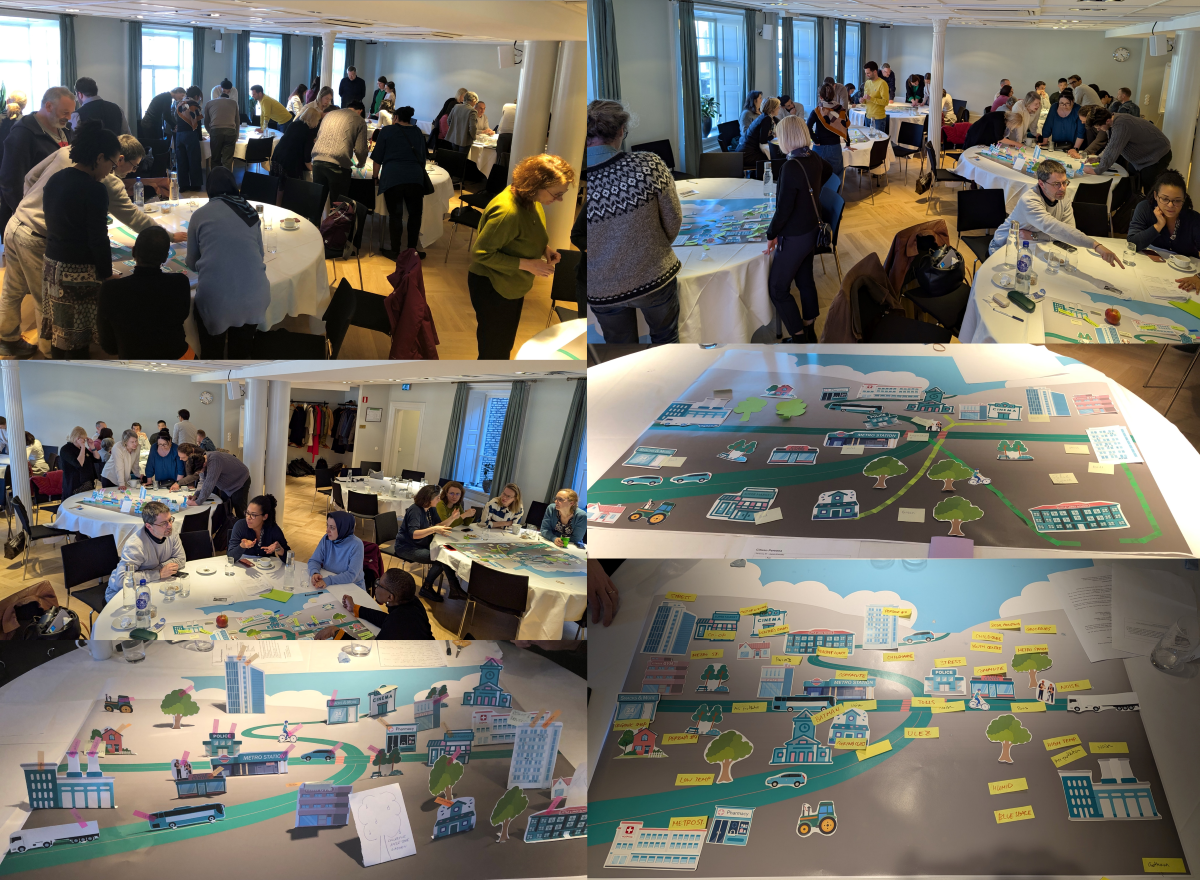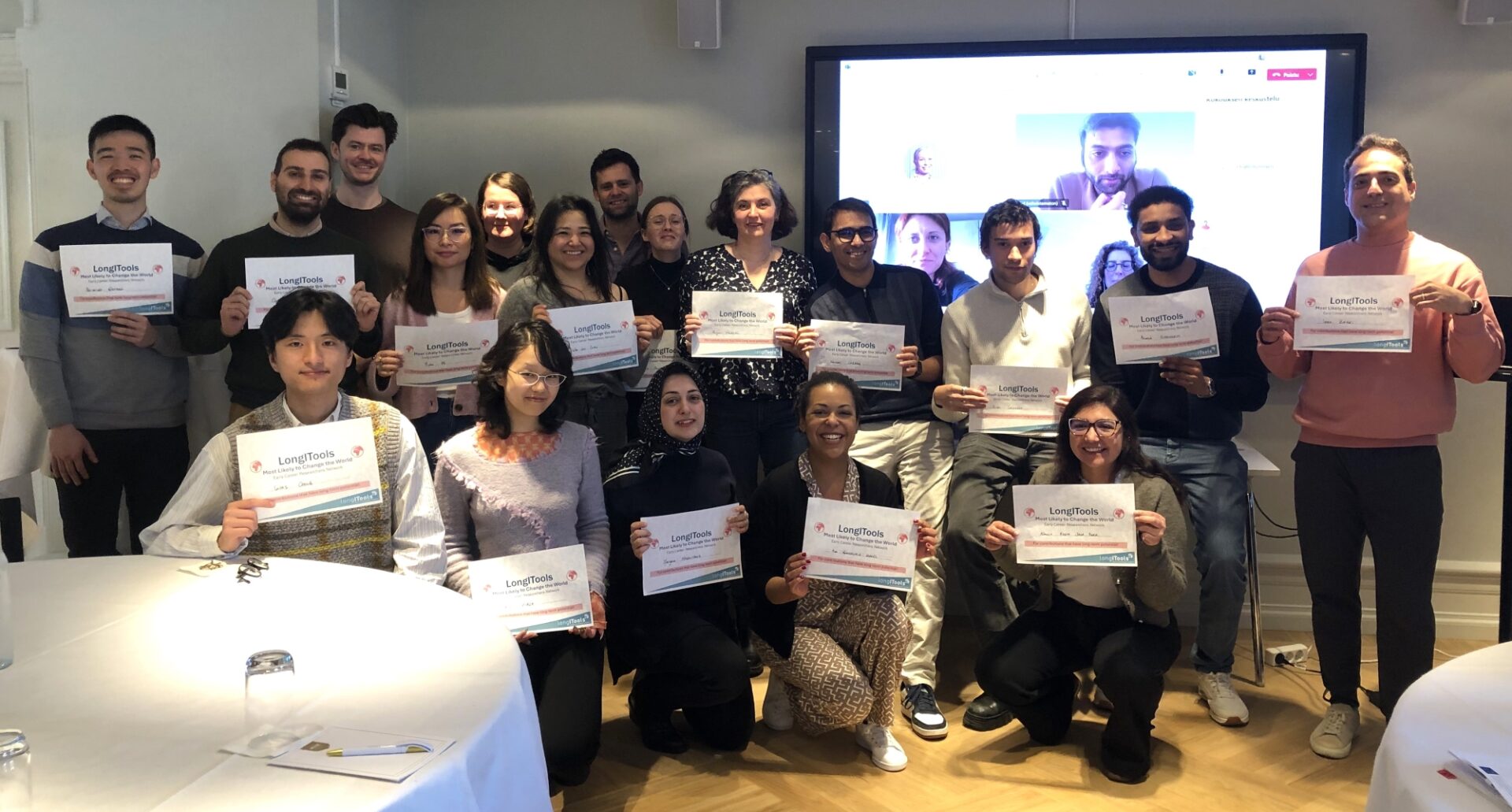Highlights from the final project meeting and Science for Policy Workshop
The eighth LongITools General Assembly Meeting was held in early April in Gothenburg, Sweden. Hosted by our LongITools partner Chalmers University of Technology, the meeting brought together the consortium for the final time to discuss the remaining work and the latest results. Organised and facilitated by our partner Beta, we also held our final Science for Policy Workshop for stakeholders.
The workshop included presentations from the European Commission, the Public Health Agency of Sweden, the Business Center Oulu in Finland, and we shared our developing policy recommendations and relevant results. Stakeholders and consortium members were also asked to work in small groups to build a community, adding exposures like air and noise pollution and issues such as crime or transportation. They were provided with a basic map and cut-out icons representing buildings, transport, green space, residential areas and food environments, along with sticky notes to add their own creative ideas. Each group was also given citizen personas and a LongITools research finding and asked to translate the finding into a community policy(s).
The workshop was run in a hybrid format, and online participants worked in parallel, using the Mural platform to build their designs and contribute to the discussion. The result was eight different-looking communities but with similar themes and potential policy interventions or community adaptations to impact people’s health.

Science for Policy Workshop: participants and outputs
Participants were extremely enthusiastic and developed an array of ideas for community leaders and policymakers. This interactive session enabled participants to visualise the complexity of the exposome and consider a holistic approach to policymaking. They explored how various exposures affect our lives and discussed practical, real-life solutions that could help address several of the key issues highlighted, including pollution, socioeconomic inequalities, food environments and transportation.
Following the workshop, we are refining our policy recommendations further, and they will be tested and discussed with stakeholders via our developing policy brief over the coming weeks.
On the final day of the consortium meeting, our Project Coordination team presented awards; these included one for the person(s) “most likely to change the world”. The winners were every one of our amazing Early Career Research Network!
Working together for over five years, and knowing the end was near, meant the final meeting was emotional, with lots of reflection and celebration alongside determination and commitment to successfully reaching the finishing line and meeting our objectives.

Winners of the “Most Likely to Change the World” award: LongITools Early Career Research Network
To view some of the presentations from our Science for Policy Workshop, visit our YouTube Channel.
Cohort Research: A Tool for Research and Policy by Janine Felix
Trustworthy and Ethical AI in Healthcare: The Future AI Guideline by Karim Lekadir
Co-exposure, Synergies and Equity in Environmental Health by Linda Molander, Public Health Agency SE
Healthy Beautiful and Sustainable Cities – Case Oulu by Leena Vuotovesi, Oulu Liikekeskus